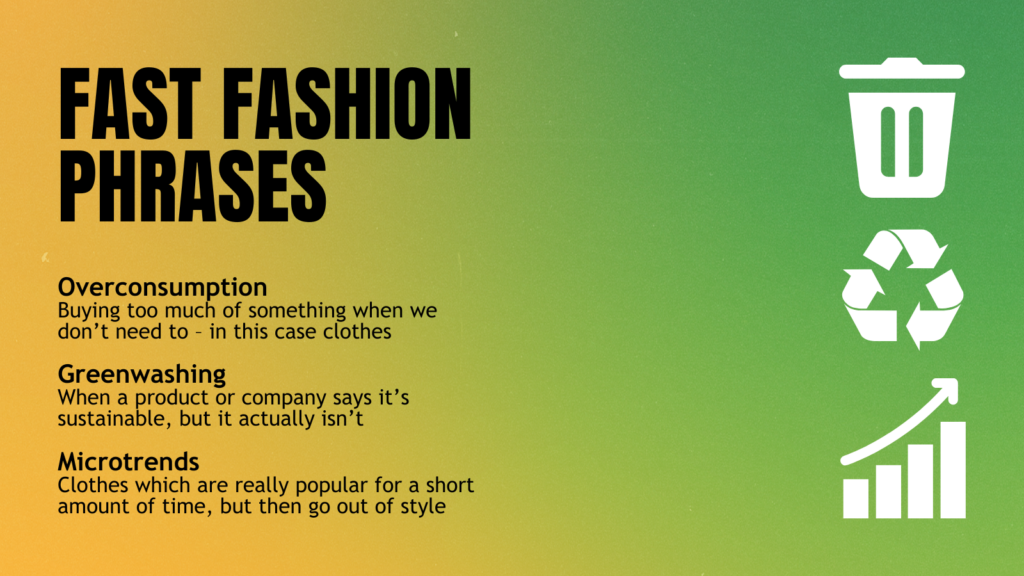What images pop into your head when someone mentions pollution? Perhaps plastic, cars, power stations? But it probably won’t be a clothes shop.
The truth is, the fashion industry is one of the largest global polluters. Multiple factors play into this – dye spillages in rivers, textile burning, production emissions, and microfibres that leak into the sea when we wash our clothes. But ultimately, the root cause is the overproduction and overconsumption of garments. Companies lure us in and invite us to buy cheap, trendy clothes which seem like a bargain in the moment… but a month later they’re falling apart and aren’t in style anymore. This toxic cycle means that one truck full of clothes goes to landfill every second.
I know the idea of fast fashion is vast and intimidating – it’s easy to feel powerless when it’s not the average person’s fault, but that of mysterious corporations and a lack of regulations. But we as young people have a responsibility to ourselves to learn about where our clothes come from and to advocate for change. The Scottish Youth Parliament has one key policy on fast fashion:
“Funding should be available to support the development of sustainable fashion…to make this an accessible and viable option, and to enable young people to shop in a more sustainable way,” (SYP’s #WhatsYourTake report: Circular Economy – ‘Disposing of a Disposable Society’, March 2020).
We’re about to begin our campaign to help young people change their fashion habits and learn what they can do to make a difference. If you want to support our campaign and begin moving towards a more sustainable wardrobe, here are some easy and accessible tips:
- Re-wear and rework what you already have
Less than 1% of clothing is currently being recycled, so by re-wearing and reworking things we already own, we can reduce the amount of clothing that goes to waste.
- Reduce your consumption
Consider when buying fast fashion: will this last you a long time? Are you going to wear it over and over? Will it be in fashion in a few months? Make sure you value what you buy!
- Shop second hand
When SYP spoke to Mary Beth Graham from Fashion Revolution at our autumn 2022 Sitting, she told us that this is the only way to know if you’re truly buying sustainably. Take the time to get familiar with online re-selling apps and charity shops. (These days, all of my clothes are second-hand – it makes me value them more because each one has a unique story and history behind it.)
- Borrow clothes
Ask friends and family members! At the SYP Sitting afterparty many MSYPs wore clothes they had borrowed off the people they know.

If we want to look after our planet, the concept of fast fashion will have to disappear almost as quickly as it arrived. But moving away from fast fashion is difficult – it takes time, money and effort. It’s important not to feel guilty for buying a new t-shirt every once and a while, and to recognise that YOU are not the problem.





